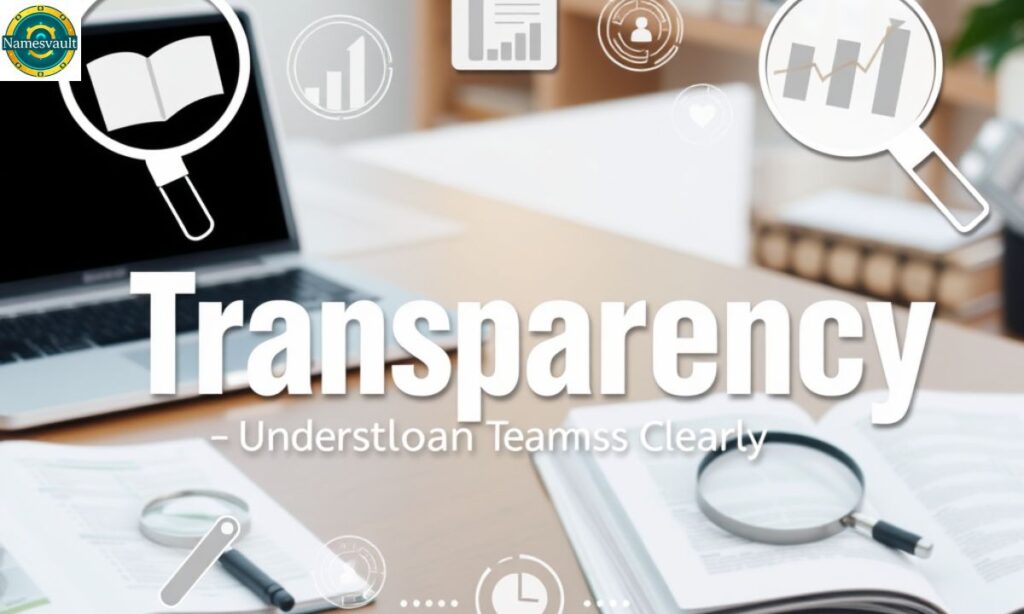Debt consolidation can be a powerful tool for those overwhelmed by multiple debts. TraceLoans.com offers a unique approach, focusing on more than just merging your debts. It emphasizes holistic financial wellness, addressing both the financial and emotional aspects of debt.
With lower interest rates, simplified payments, and educational resources, debt consolidation through TraceLoans.com can help you regain control. It’s about transforming your financial habits and building a healthier financial future.
The Hidden Burden: Debt and Its Impact on Mental Wellness
Debt does more than just affect your finances—it weighs heavily on your mental health. According to studies, individuals carrying high levels of debt often experience stress, anxiety, and depression. Financial struggles can cause sleepless nights, relationship tension, and a constant fear of the future.
The stress of managing multiple debts can contribute to decision fatigue, where individuals feel overwhelmed by their financial situation and struggle to make the right decisions. This fatigue can lead to financial missteps and further strain on mental health.
By consolidating debts, individuals can alleviate stress by simplifying their payments and reducing the constant pressure of managing multiple debts.
Debt consolidation allows individuals to take a holistic approach to their financial health by not only addressing their monetary issues but also offering peace of mind and mental relief.
Simplifying Finances: Streamlining Multiple Debts
Managing multiple debts can quickly become a complicated and overwhelming task. With various creditors, due dates, and varying interest rates, it’s easy for individuals to feel out of control. Debt consolidation offers a solution by merging all debts into a single, more manageable payment.
This streamlined approach simplifies finances, allowing individuals to focus on a clear repayment plan. It also reduces the risk of missing payments and incurring additional fees, which can further complicate the financial situation.
Debt consolidation isn’t just about simplifying the number of debts—it’s about creating a clearer path toward financial stability. By reducing complexity, individuals can make better financial decisions and work towards building a secure future.
Lower Interest Rates: Saving Money Over Time
One of the most attractive aspects of debt consolidation is the potential for lower interest rates. Many individuals with multiple debts are paying high interest rates on credit cards, payday loans, or personal loans. Consolidating these debts into a single loan with a lower interest rate can save significant money over time.
When you consolidate, more of your monthly payment goes toward reducing the principal balance rather than paying off high interest. Over time, this can accelerate debt repayment and help individuals become debt-free more quickly..
The potential for savings through lower interest rates is substantial. For instance, a high-interest credit card with an APR of 24% can become much more manageable when consolidated into a loan with a 10% interest rate. This shift not only reduces monthly payments but also saves thousands of dollars in interest.
| Debt Type | Original Interest Rate | Consolidated Interest Rate | Original Monthly Payment | Consolidated Monthly Payment |
| Credit Card Debt | 24% | 10% | $500 | $400 |
| Personal Loan | 18% | 8% | $300 | $250 |
| Payday Loan | 36% | 10% | $200 | $150 |
| Total Savings | – | – | $1,000 | $800 |
This table demonstrates the potential for significant savings through debt consolidation. By lowering interest rates, individuals can not only save money but also accelerate their journey to financial freedom.
Improved Credit Score: Building Financial Health
Debt consolidation can play a pivotal role in improving your credit score. Credit scores are heavily influenced by credit utilization (the ratio of outstanding credit to available credit) and payment history..
Debt consolidation ensures that you make regular, on-time payments, which is a key factor in improving your credit score. By staying consistent with your monthly payments, you show lenders that you are financially responsible, increasing your ability to access future credit at more favorable terms.
An improved credit score means better financial opportunities—lower interest rates on future loans, easier access to credit cards, and better financial terms. Debt consolidation, therefore, is not just about managing debt but also about building a healthier credit profile.
Reduced Stress: Alleviating Financial Anxiety
The stress caused by financial difficulties is a common issue for individuals with high levels of debt. Constant worry about making payments, dealing with creditors, and managing multiple loans can cause anxiety and emotional fatigue.
This stress often extends beyond finances, affecting relationships, work performance, and overall happiness.Debt consolidation helps to reduce stress by simplifying the financial landscape. With one payment, individuals can focus on managing their debt without feeling overwhelmed by multiple creditors.
When debt is simplified and the individual can see a clear path to repayment, it has a significant positive impact on mental health. Debt consolidation reduces the overwhelming weight of financial anxiety, giving individuals a sense of control and peace of mind.
Personalized Solutions: Tailored Debt Management
Debt consolidation offers personalized solutions to meet the unique needs of each individual. Lenders who offer debt consolidation services take into account an individual’s total debt, income, and other factors to create a personalized plan that works for them.
Instead of offering a generic solution, personalized debt management provides individuals with options that are best suited to their financial situation. This could include adjusting the loan terms, modifying repayment schedules, or finding a consolidation option with the best interest rates.
By offering personalized plans, debt consolidation becomes a flexible and effective solution for anyone looking to regain financial stability. With the right plan, individuals can consolidate their debts in a way that fits their specific financial needs.
Transparency: Understanding Loan Terms Clearly
Transparency is an important feature of debt consolidation. It ensures that individuals understand the terms of the loan they are entering. From interest rates to fees and repayment schedules, it is crucial that all aspects of the loan are clearly laid out.
Debt consolidation allows for clear communication about loan terms, helping borrowers avoid confusion and make informed decisions. By understanding the terms, individuals are better prepared to stick to their repayment plan and avoid surprises along the way.
Transparency in debt consolidation fosters trust between lenders and borrowers. When both parties are clear about the loan details, the process becomes smoother and more manageable, ensuring the individual has the tools they need to succeed in their financial journey.

Eligibility Criteria: Who Can Benefit from Consolidation
Debt consolidation can be a valuable tool for many people, but not everyone is eligible. Understanding the eligibility criteria is crucial in determining whether this option will work for you.
Typically, individuals who can benefit from debt consolidation have multiple debts, often with varying interest rates. Those who struggle to manage their finances and feel overwhelmed by multiple monthly payments are the ideal candidates for debt consolidation.
Before considering consolidation, it’s essential to assess factors like income level, credit score, and total debt amount. Lenders usually set criteria based on these variables. Borrowers should ensure they meet the basic requirements before proceeding to avoid wasting time or facing rejections from potential lenders.
Application Process: Steps to Consolidate Your Debt
The application process for debt consolidation can seem daunting at first, but it is relatively straightforward once you understand the steps involved. Each lender will have its own process, but most follow a similar path that can be broken down into clear stages.
The first step in consolidating your debt is to gather all financial information. This includes a list of your debts, credit reports, and income details. Lenders will use this information to assess your financial situation and determine whether you qualify for consolidation.
After gathering necessary documents, the next step is to apply for a loan or line of credit. Many debt consolidation services allow you to apply online, which makes the process quicker. Once you submit your application, the lender will review your information and offer loan terms based on your qualifications.
Once approved, you’ll be asked to accept the loan and provide necessary signatures. The lender then uses the funds to pay off your existing debts, and you’ll be responsible for making monthly payments on your consolidated loan.
| Step | Description |
| 1 | Gather financial documents and assess debts |
| 2 | Submit application for consolidation loan |
| 3 | Review loan terms and sign agreement |
| 4 | Lender pays off your debts, you repay loan |
Loan Options: Choosing the Right Consolidation Plan
Choosing the right loan option is critical in ensuring that debt consolidation works effectively for you. There are several types of loans to consider, including personal loans, balance transfer credit cards, and home equity loans. Each option has its advantages and disadvantages depending on your financial situation.
A personal loan is a common choice for debt consolidation. It allows you to borrow a fixed amount of money at a set interest rate, which you then use to pay off your existing debts.
Balance transfer credit cards are also a popular option if you qualify for a card with 0% interest for a specific period. Lastly, a home equity loan offers access to funds by leveraging the equity in your home but comes with higher risks if you fail to make payments.
When choosing the right option, it’s important to consider the interest rate, repayment terms, and your ability to meet the monthly payments. Carefully comparing the pros and cons of each loan type will help you make an informed decision and find the best solution for your situation.
Financial Education: Empowering Borrowers
One of the key aspects of debt consolidation is the opportunity for financial education. Consolidating your debt doesn’t just involve merging multiple loans into one. It’s also a chance for individuals to learn better financial habits and gain a deeper understanding of their financial situation.
Many debt consolidation services offer educational resources that can help borrowers improve their financial literacy. These resources teach budgeting, understanding credit scores, and the importance of saving.
By educating yourself about money management, you can prevent future debt problems and create a strong financial foundation.
Financial education is about empowering borrowers to take control of their finances. It’s not just about paying off existing debts but ensuring that future financial decisions are more informed and responsible.
Long-Term Benefits: Achieving Financial Freedom
The long-term benefits of debt consolidation extend far beyond the immediate relief it provides. One of the key advantages is the potential for financial freedom. When multiple debts are consolidated, monthly payments become more manageable, allowing borrowers to save money and build wealth over time.
Consolidating debt can lead to improved credit scores. By simplifying payments and making them on time, individuals show responsible financial behavior, which can positively impact their credit history. Over time, this can lead to better access to credit and lower interest rates on future loans.
The long-term benefits of debt consolidation go hand-in-hand with financial education. As borrowers develop better money management habits, they are less likely to fall back into debt and more likely to achieve lasting financial freedom.
Common Mistakes: Pitfalls to Avoid in Debt Consolidation
While debt consolidation offers many benefits, it’s important to be aware of common mistakes that borrowers may make during the process. These mistakes can undermine the potential advantages of consolidation and lead to further financial strain.
One common mistake is consolidating high-interest debt without addressing the underlying spending habits. Without changing behavior, individuals may end up accumulating more debt, which defeats the purpose of consolidation. Another mistake is failing to carefully review loan terms, which can result in higher fees or interest rates.
Finally, many people make the mistake of assuming that debt consolidation is a quick fix. While it’s an effective tool, it requires discipline, time, and effort to achieve lasting results. Borrowers must maintain responsible financial habits to ensure the success of the consolidation process.
| Common Mistake | Explanation |
| Ignoring underlying spending | Fails to address behavioral issues |
| Not reviewing loan terms | Leads to high fees and unfavorable rates |
| Treating it as a quick fix | Requires long-term discipline for success |
Success Stories: Real-Life Experiences with Debt Consolidation
Debt consolidation has helped countless individuals regain control over their finances. Success stories illustrate how this process has transformed lives by reducing debt and improving financial health.
For example, Jane, a single mother struggling with credit card debt, successfully consolidated her debts into one loan with a lower interest rate. This allowed her to save money and reduce monthly payments, giving her more room to build a savings account. Over time, Jane’s credit score improved, and she felt more confident in managing her finances.
Similarly, John, a young professional burdened with student loans, found relief through debt consolidation. By merging his loans into one manageable payment, he was able to pay off his debt faster and start investing in his future.
These success stories show that with the right approach and tools, debt consolidation can lead to lasting financial wellness.
Future Outlook: The Evolving Landscape of Debt Management
The landscape of debt management continues to evolve, especially with the growing number of options available for debt consolidation. Technological advancements have made it easier for individuals to access consolidation services and manage their finances online.
Fintech innovations have led to more personalized consolidation plans that cater to the needs of each borrower.The increase in financial literacy resources means that more individuals are becoming aware of the benefits of debt consolidation before they fall into serious debt.
Looking ahead, the future of debt consolidation will likely be marked by greater accessibility, more customization, and increased financial education to help individuals not just manage debt but build sustainable wealth.
FAQ’s
What is debt consolidation?
Debt consolidation combines multiple debts into one loan with a single payment, often with a lower interest rate.
How can debt consolidation help improve my credit score?
By consolidating debt and making timely payments, you can reduce credit utilization and gradually improve your credit score.
Is debt consolidation suitable for everyone?
Debt consolidation is ideal for those with multiple high-interest debts but may not be suitable for people who are unable to manage their payments responsibly.
How long does the debt consolidation process take?
The process can take a few weeks to a month, depending on the complexity of your debts and the lender’s requirements.
Can TraceLoans.com provide personalized financial solutions?
Yes, TraceLoans.com offers customized solutions tailored to your financial situation, ensuring the best outcome for your needs.
Conclusion
TraceLoans.com debt consolidation is not just about merging debts, but about providing a holistic approach to achieving financial wellness. By simplifying your finances and addressing the psychological impacts of debt, it can be the first step toward a brighter, more stable financial future.

Hayat is a skilled content writer and SEO expert with 5 years of experience, specializing in digital marketing, SEO strategies, and content creation for various platforms.


![450+ Badass Panther Names [Fierce, Mystical & Unique Ideas] 450+ Badass Panther Names [Fierce, Mystical & Unique Ideas]](https://namesvault.info/wp-content/uploads/2025/02/450-Badass-Panther-Names-Fierce-Mystical-Unique-Ideas-150x150.jpg)
![600+ Cute & Catchy Pigeon Names [Perfect Ideas for Your Flocks] 600+ Cute & Catchy Pigeon Names [Perfect Ideas for Your Flocks]](https://namesvault.info/wp-content/uploads/2025/02/600-Cute-Catchy-Pigeon-Names-Perfect-Ideas-for-Your-Flocks-150x150.jpg)

